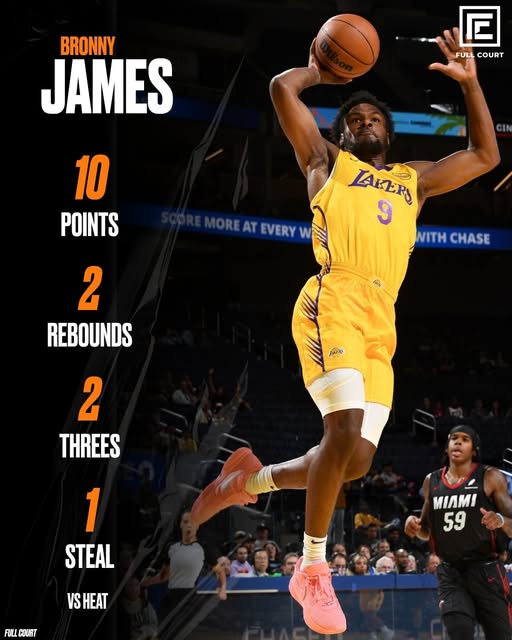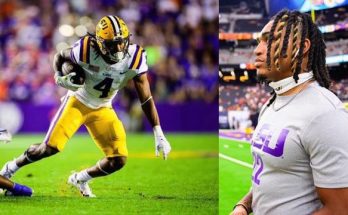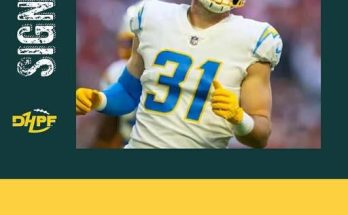Bronny James made headlines again—not just for his famous last name, but for the growing game that continues to take shape in the intense, competitive atmosphere of the NBA Summer League. As the Los Angeles Lakers squared off against the Miami Heat in a highly anticipated Summer League matchup, all eyes were once again fixed on the young guard wearing the iconic purple and gold. And despite logging only 11 minutes of playing time, Bronny managed to make his presence felt in ways that suggest he’s not just coasting on legacy—he’s starting to carve out one of his own.
For Bronny, every minute on the court is magnified, dissected, and judged on a scale most rookies are never subjected to. That’s what happens when your father is LeBron James, arguably one of the greatest to ever play the game. But rather than shrink under that microscope, Bronny used his 11 minutes wisely, delivering a composed, productive performance that contributed meaningfully to the Lakers’ 107-96 win over the Heat. It wasn’t about jaw-dropping highlights or gaudy numbers—it was about doing the little things right, fitting into the system, and showing that he belongs on this stage.
His stat line was modest—7 points, 2 rebounds, 1 assist, and 1 steal—but it was the manner in which he produced that made the difference. Bronny played with poise, making smart decisions on both ends of the floor. He knocked down a confident corner three in the first half that sent Lakers fans in Las Vegas into a frenzy, then followed it up with a crafty midrange jumper that showed a soft touch and strong fundamentals. It wasn’t just what he did with the ball—it was how he moved without it, the way he rotated defensively, communicated with teammates, and hustled for loose balls. It was a performance that screamed “team-first,” and in a league often dominated by flash, Bronny’s quiet efficiency stood out.
This kind of outing is what the Lakers hoped to see when they selected him with the 55th overall pick in the 2024 NBA Draft. While the pick raised eyebrows—some questioned whether it was a sentimental gesture to entice LeBron to stay—Bronny is beginning to silence critics with a work ethic that mirrors the legendary drive of his father. Lakers head coach JJ Redick, now entering his first Summer League campaign with a team he hopes to mold in his image, was particularly pleased with Bronny’s effort. Redick has long emphasized spacing, ball movement, and defensive tenacity, and Bronny’s game—while still raw—appears tailor-made for that style.
“He played his role exactly how we asked,” Redick said postgame. “We didn’t need him to go out there and dominate the ball. We needed him to be smart, play hard, and take the right shots. And that’s exactly what he did. It’s not about putting up 25 points—it’s about making the right reads and playing winning basketball.”
That sentiment has been echoed throughout the Lakers organization since Bronny arrived. There’s an understanding that development will take time, but there’s also growing belief that with patience, discipline, and opportunity, Bronny can flourish in his own right. His basketball IQ is already well ahead of many of his peers, which is not surprising given the wealth of knowledge he’s absorbed through years of close proximity to NBA greatness. But what’s more impressive is his willingness to learn, to play within himself, and to embrace the grind.
There was a moment late in the second quarter that encapsulated Bronny’s mindset. After missing a tough layup in traffic, he immediately sprinted back on defense, picked up his assignment in transition, and forced a turnover with active hands and footwork. It was a hustle play that didn’t show up on the scoreboard, but it earned nods of approval from the bench and loud cheers from Lakers fans in the building. It’s those small moments that define a player’s impact—especially for a young guard still finding his rhythm in the professional ranks.
Offensively, Bronny showed improved shot selection compared to his Summer League debut. Rather than forcing the issue, he let the game come to him. He made a slick bounce pass to a cutting teammate that led to a dunk, flashed solid ball-handling under pressure, and never seemed rattled when facing the Heat’s aggressive perimeter defense. There’s a sense of calm to his game that’s rare for a rookie, and it’s becoming clear that he’s learning how to make the most of limited opportunities.
For Lakers fans, the excitement around Bronny isn’t just about what he is now—it’s about what he could become. His frame has continued to fill out, and at 6’4” with a sturdy build and athletic pedigree, he’s starting to look like someone who could evolve into a reliable two-way contributor in the league. He’s not the type to light up the scoreboard every night, but he doesn’t need to be. With veterans like D’Angelo Russell, Austin Reaves, and potentially his father still occupying major roles on the roster, Bronny’s path will likely be one of incremental growth—spot minutes, defensive assignments, secondary ball-handling responsibilities, and eventually, bigger moments as his confidence and skill set expand.
The Summer League is ultimately a proving ground, and for Bronny, it’s also a proving point. He’s not simply here to check a box or fulfill a marketing storyline. He’s here to work, to grow, and to show that he has the tools to carve out his own name in the NBA. He understands the pressure, the scrutiny, and the expectations. But he’s not trying to be the next LeBron James—he’s trying to be the first Bronny James. And if he continues to approach the game with this level of focus and humility, there’s every reason to believe he’ll earn a real role in the Lakers’ rotation sooner rather than later.
What makes this all the more impressive is the context behind his journey. Just a year ago, Bronny was recovering from a frightening cardiac arrest incident that shook the basketball world. His return to the court was nothing short of courageous, and every step forward since then has been a testament to his resilience and determination. That perspective—one forged through adversity—has shaped the way he approaches every game. He doesn’t take these minutes for granted. He plays like someone who knows how quickly it can all be taken away.



